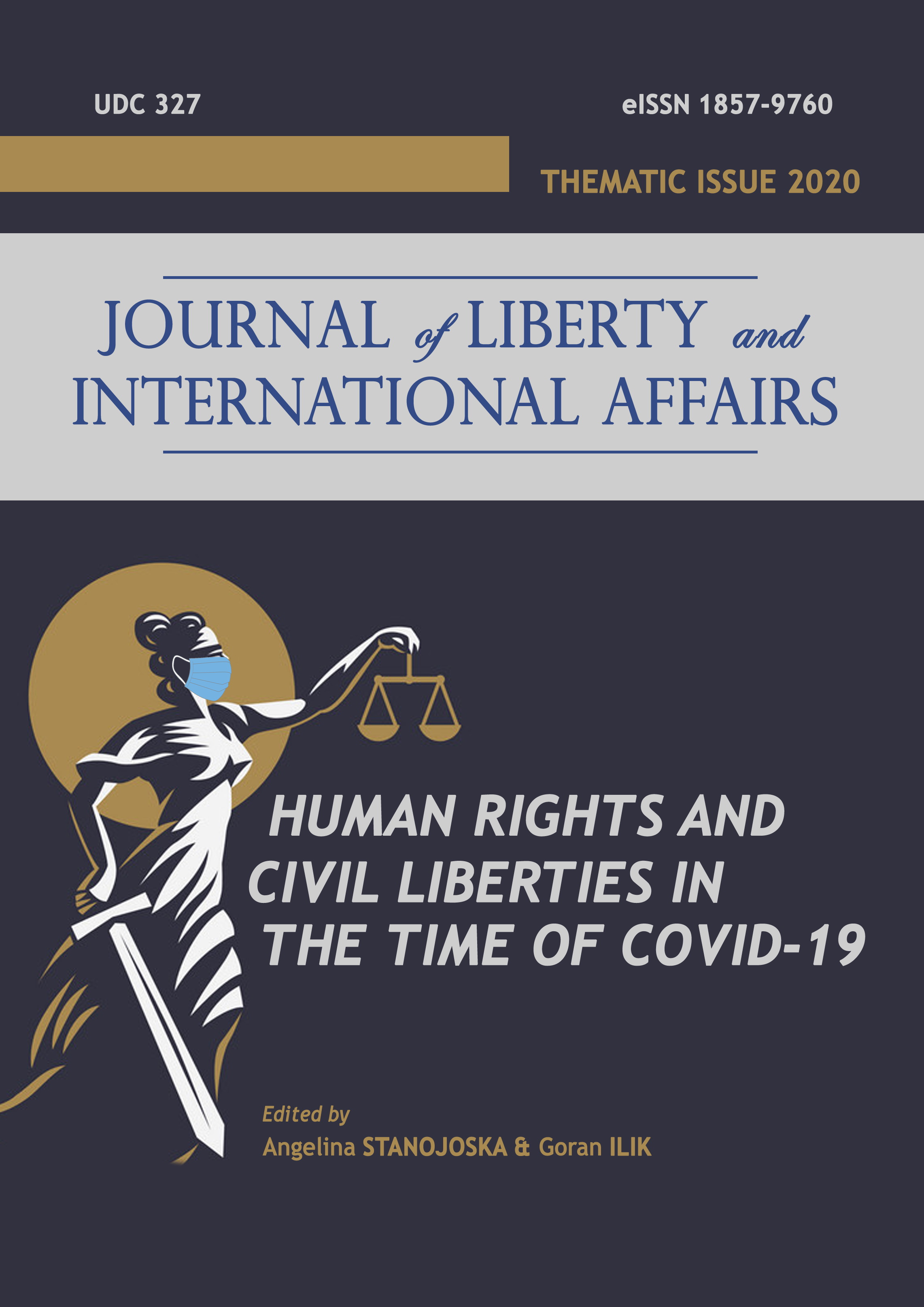FREEDOM OF EXPRESSION IN TIMES OF COVID-19: CHILLING EFFECT IN HUNGARY AND SERBIA
FREEDOM OF EXPRESSION IN TIMES OF COVID-19: CHILLING EFFECT IN HUNGARY AND SERBIA
Author(s): Kristina Ćendić, Gergely GosztonyiSubject(s): Politics / Political Sciences, Politics, Law, Constitution, Jurisprudence, Constitutional Law, Criminal Law, International Law, Human Rights and Humanitarian Law, Law and Transitional Justice, Political Theory, Political Sciences, Civil Society, Public Law, Government/Political systems, International relations/trade, Developing nations, Political behavior, Politics and law, Politics and society, History and theory of political science, Methodology and research technology, Comparative politics, EU-Approach / EU-Accession / EU-Development, EU-Legislation, Politics of History/Memory, Politics and Identity, Peace and Conflict Studies, Court case
Published by: Institute for Research and European Studies - Bitola
Keywords: Freedom of Expression; Media; Chilling Effect; Covid-19; Hungary;Serbia;
Summary/Abstract: New technologies have opened several risks to safety of journalists. More importantly, in the state of emergency caused by the Covid-19 outbreak, journalists and media actors have shifted their activities online more than ever, which also made them more prone to digital threats and attacks. In some regimes there are even organized intimidation campaigns against political opponents causing chilling effect and self-censorship, and jeopardizing freedom of expression in general. Hungary as a member of the European Union since 2004 and Serbia as a leading candidate to join the EU are two countries where the problems and concerns about media freedom is growing every day. The fear from the unknown during the international pandemic gave opportunity to some governments to hide their real political agendas and cover their desire for the 'good-old-fashioned' censorship. The number of countries where some kind of censorship could be found is growing every day. The authors will show two country-case-studies from Hungary and Serbia, where the leaders and the political situations are very similar and could show a (good or bad) example to other countries that would like to follow the illiberal views on media issues.
Journal: Journal of Liberty and International Affairs
- Issue Year: 06/2020
- Issue No: Suppl.
- Page Range: 14-29
- Page Count: 16
- Language: English

